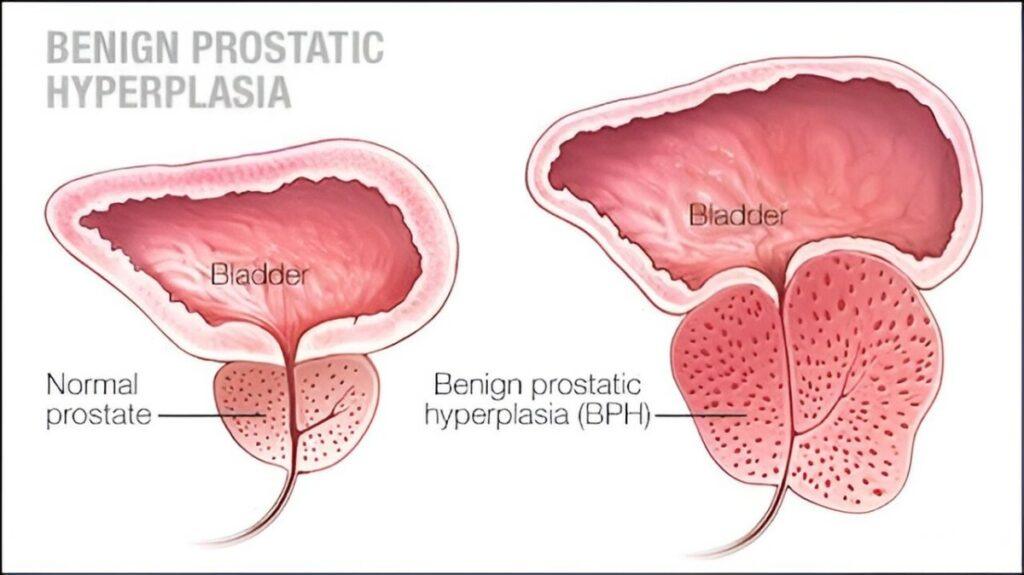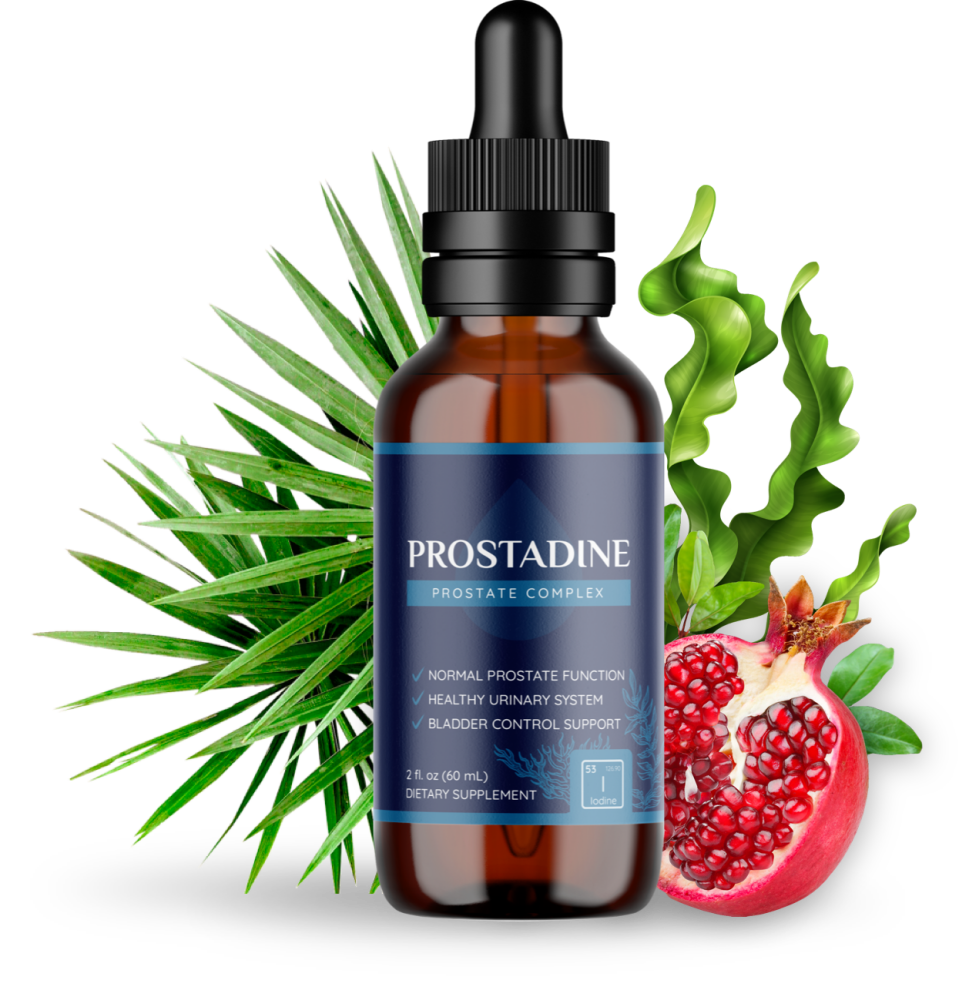An enlarged prostate, or benign prostatic hyperplasia (BPH), is a common condition that affects many men as they age. It occurs when the prostate gland, located just below the bladder, grows larger, causing it to put pressure on the urethra and interfere with urination. While it’s not a life-threatening condition, it can significantly impact a man’s quality of life. In this article, we’ll delve into the causes of an enlarged prostate, explore effective management strategies, and address some common questions.

The exact causes of an enlarged prostate are not fully understood, but several factors are believed to contribute to its development:
- Aging: As men age, their prostate gland naturally grows larger.
- Hormonal Changes: The balance of hormones in the body changes with age, which can contribute to prostate growth.
- Genetics: Some men may have a genetic predisposition to developing an enlarged prostate.
- Lifestyle Factors: Certain lifestyle factors, such as obesity, a sedentary lifestyle, and a diet high in red meat, may increase the risk of prostate enlargement.
Symptoms of an Enlarged Prostate
The symptoms of an enlarged prostate can vary from person to person, but they often include:
- Frequent Urination: The need to urinate more often, especially at night.
- Urgency: A sudden, strong urge to urinate that’s difficult to resist.
- Weak Urine Stream: A reduced force of urine flow.
- Hesitancy: Difficulty starting the flow of urine.
- Dribbling: Leaking of urine after urinating.
- Incomplete Emptying: The feeling of not completely emptying the bladder.
Diagnosis and Treatment
If you’re experiencing symptoms of an enlarged prostate, it’s important to see a healthcare provider for a diagnosis. They will likely perform a physical exam and may order tests, such as a digital rectal exam or blood tests, to rule out other conditions.
The treatment for an enlarged prostate will depend on the severity of your symptoms. In mild cases, lifestyle changes and medication may be sufficient. For more severe cases, surgery may be necessary.
Other Advance Treatments: Minimally-invasive treatments include GreenLight Laser Therapy, Rezum Water Vapour Therapy, and Urolift. Each has its own benefits and recovery times.
Lifestyle Changes for Prostate Health
Several lifestyle changes can help manage the symptoms of an enlarged prostate and improve overall prostate health:
- Reduce Stress: Regular exercise and relaxation techniques like meditation can help reduce stress, which can contribute to prostate enlargement.
- Empty the Bladder Fully: Take time to completely empty your bladder when urinating and avoid straining.
- Review Medications: Some medications can aggravate urinary symptoms. Talk to your doctor about any medications you’re taking.
- Limit Evening Fluid Intake: Avoid drinking excessive amounts of fluids in the evening, especially caffeinated and alcoholic beverages.
- Maintain a Healthy Diet: A diet rich in fruits, vegetables, and whole grains can support prostate health. Consider incorporating foods like tomatoes, broccoli, green tea, pomegranate juice, fatty fish, nuts, soy products, berries, pumpkin seeds, and carrots into your diet.
- Manage Weight: Maintaining a healthy weight can help reduce pressure on the prostate and bladder.
Supplements With Natural ingredients

While there’s limited scientific evidence to support the use of supplements for enlarged prostate, some men may find relief from certain natural remedies. However, it’s essential to consult with a healthcare provider before starting any new supplements or natural remedies.
A popular supplement with all natural ingredients for enlarged prostate is Prostadine:
- Saw Palmetto Extract: A real champion for reducing BPH symptoms, this extract helps by inhibiting DHT, a hormone linked to prostate enlargement. Users often see a marked improvement in their urinary flow.
- Beta-Sitosterol: Known for its anti-inflammatory properties, Beta-Sitosterol also helps improve urinary function. It’s a superstar when it comes to easing the discomfort of frequent trips to the bathroom.
- Zinc: This mighty mineral regulates testosterone levels and boosts immune function, which are both crucial for keeping the prostate in good shape. Zinc’s role here is all about balance and support.
- Pygeum Africanum Bark Extract: Another anti-inflammatory warrior, this extract reduces symptoms of BPH and enhances urinary health. It’s like giving your prostate a breath of fresh air.
- Lycopene: A potent antioxidant found in tomatoes, lycopene is linked to a reduced risk of prostate cancer. It neutralizes harmful free radicals, adding an extra layer of protection for your prostate.
- Nettle Root Extract: Known for alleviating symptoms of BPH, nettle root improves urinary flow and function. It’s a great all-rounder for supporting prostate health.
- Bladderwrack Powder and Shilajit: These ingredients offer additional anti-inflammatory and antioxidant properties, further supporting overall prostate function. They might not be as well-known, but their benefits are definitely worth noting.
Conclusion
An enlarged prostate is a common condition that affects many men as they age. While it can be frustrating and uncomfortable, it’s important to remember that it’s a manageable condition. By understanding the causes, symptoms, and treatment options, you can take steps to improve your quality of life and maintain prostate health.
** Our website contains affiliate links. This means if you click and make a purchase, we may receive a small commission. Don’t worry, there’s no extra cost to you. It’s a simple way you can support our mission to bring you quality content.
FAQ:
1. Is an enlarged prostate a serious condition?
While an enlarged prostate is not a life-threatening condition, it can significantly impact your quality of life. If left untreated, it can lead to complications such as urinary retention or infection.
2. Can an enlarged prostate cause prostate cancer?
No, an enlarged prostate is not a precursor to prostate cancer. However, it’s important to have regular check-ups with your doctor to monitor your prostate health and detect any potential problems early.
3. Is there a cure for an enlarged prostate?
There is no cure for an enlarged prostate. However, the symptoms can often be managed effectively with lifestyle changes, medication, or in some cases, surgery.
4. Can an enlarged prostate affect fertility?
In most cases, an enlarged prostate does not affect fertility. However, if the condition is severe and leads to urinary retention or other complications, it may impact fertility.
5. Can I prevent an enlarged prostate?
While there is no guaranteed way to prevent an enlarged prostate, maintaining a healthy lifestyle, including a balanced diet, regular exercise, and stress management, can help reduce your risk.
6. What are the major causes of prostate enlargement?
The cause of prostate enlargement is unknown, but it’s believed to be linked to hormonal changes as a man gets older. The balance of hormones in your body changes as you get older and this may cause your prostate gland to grow.

Hello,
Great overview on enlarged prostate and BPH! It is so informative to see how aging, hormonal changes and lifestyle factors all play a role in this common condition. I especially appreciate the emphasis on lifestyle changes that can improve symptoms, like diet and exercise, as they feel actionable and empowering.
The mention of natural remedies is also interesting; it is always good to explore different options while keeping in mind the importance of consulting with a healthcare provider. This post is a valuable resource for anyone navigating prostate health.
Thanks for sharing!
Hi Starlight,
Thank you so much for such a considerate comment!
I am glad you liked all the information on an enlarged prostate and BPH. That is very good to know this emphasis on lifestyle modifications regarding diet and exercise was helpful to you, because through such apparently insignificant but telling steps, we can be really powerful in taking care of our health.
Natural remedies can definitely complement conventional treatments, but as you have stated, in consultation with a healthcare professional-one that will help determine if an approach is going to be safe and effective for any given situation.
Thank you for your response, and I am very glad this article is proving to be a good resource for you as you contemplate various possibilities regarding keeping the prostate healthy. Should you have further questions or would like to share your experience, please do not hesitate to reach out to me!
This article on the causes of an enlarged prostate is very informative! I appreciate how clearly it explains the various factors that can contribute to this condition. The insights into lifestyle and health factors are particularly valuable for understanding prevention and management. Thank you for providing such essential information that can help readers stay informed about their health!
Hi Cornelius,
Thank you so much for your kind words! I’m glad you found the article on the causes of an enlarged prostate informative and helpful. It’s true—understanding the lifestyle and health factors that contribute to this condition can really empower people to make proactive choices for their well-being.
Prevention and management through diet, exercise, and awareness can make a huge difference in maintaining prostate health. I appreciate you taking the time to share your thoughts, and I hope the information continues to benefit you and others!